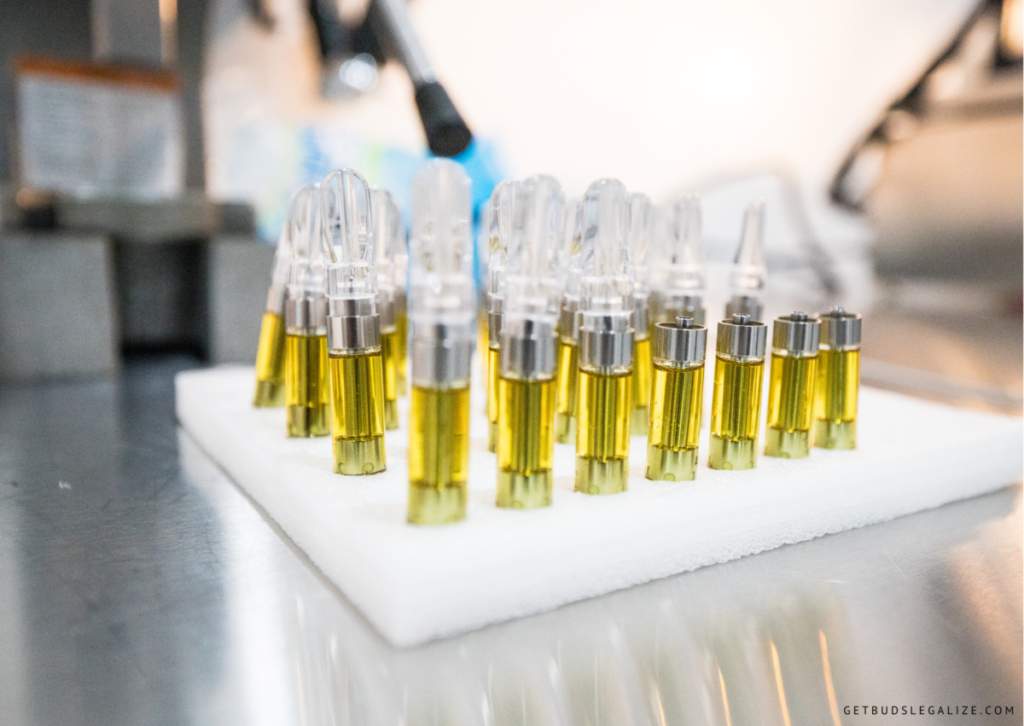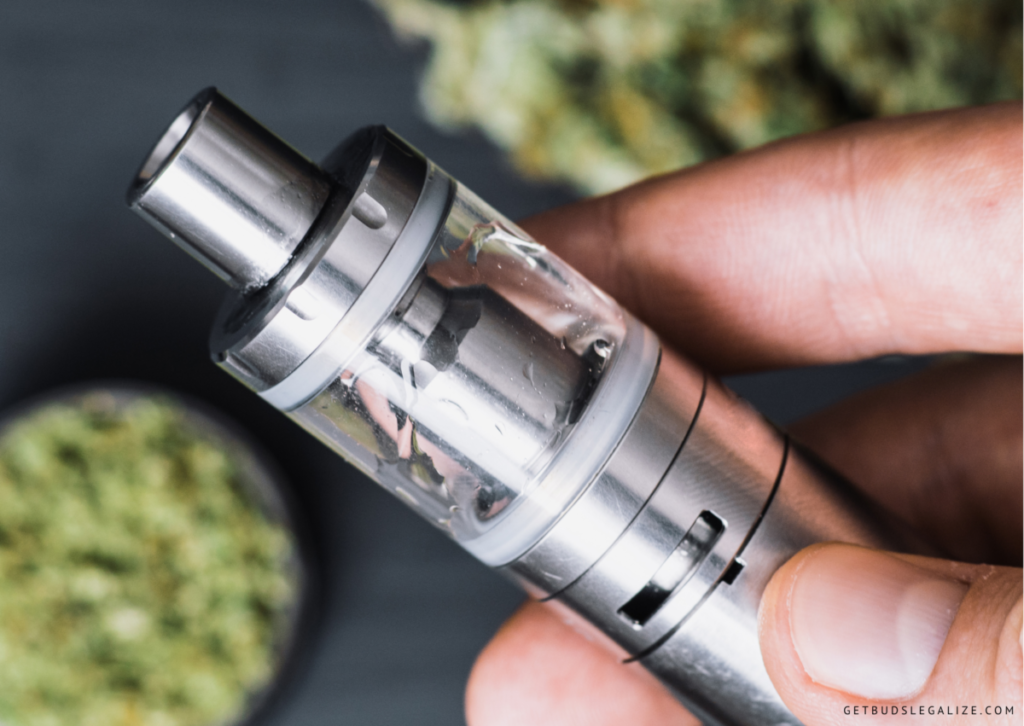Delta 10 THC: Risks, Benefits, Effects, and Medical Uses
Delta 10 THC is one of the many cannabinoids found in the cannabis plant. It is a rare and novel compound that has recently gained popularity among cannabis enthusiasts and medical marijuana consumers. But what is delta 10 THC exactly and how does it differ from other types of THC?
In this blog post, we will explore the benefits, effects, and medical uses of Delta 10 THC, as well as the similarities and differences between Delta 8, and Delta 9 THC. We will also discuss the safety, legality, and availability of Delta 10 products, and provide some tips on how to use them effectively.
What is Delta 10 THC?
Delta-10 THC is a rare compound that occurs naturally in cannabis plants, but only in small amounts. Unlike Delta-9 THC, the most common and well-known cannabinoid in cannabis, delta-10 THC is not easy to extract from plant material. Therefore, most of the delta-10 products available to consumers are made synthetically in the laboratory, using complex purification and synthesis methods.
Delta 10 has a similar molecular structure to Delta 9 THC but with a slight difference in the position of the double bond. This difference affects how delta 10 THC interacts with the endocannabinoid system (ECS).
How Delta-10 THC Affects the Body?
One of the ways Delta-10 THC affects the body is by interacting with the endocannabinoid system (ECS). The ECS is involved in maintaining homeostasis or balance in many physiological processes, such as mood, cognition, memory, pain perception, appetite, sleep, immune function, and more.
The ECS is made up of two types of receptors: CB1 and CB2. CB1 receptors are mostly found in the brain and central nervous system (CNS), while CB2 receptors are mostly found in the immune system and peripheral tissues. Different cannabinoids can bind to these receptors with varying degrees of affinity and effectiveness, which determines their effects on the body.
Delta-10 THC binds to CB1 and CB2 receptors in the ECS but with lower affinity than Delta-9 THC. This means it may have less of an impact on the central nervous system than Delta-9 THC, but still affect mood, cognition, memory, pain perception, appetite, sleep, and more. Delta-10 THC can also modulate the activity of other neurotransmitters in the brain, such as serotonin, dopamine, and glutamate, which are involved in mood regulation, reward processing, learning, and memory formation.
What are the Effects of Delta-10?
Some of the reported effects of Delta-10 THC include:
- Visual distortions
- Euphoria
- Relaxation
- Increased creativity
- Enhanced focus
Potential Delta-10 Benefits and Medical Uses

Some of the potential benefits and uses of delta-10 THC are:
Pain Relief:
Delta-10 THC may have analgesic properties that can help with chronic pain, inflammation, and neuropathy. It may also interact with other cannabinoids and terpenes to enhance the entourage effect and provide more relief than isolated compounds.
Mental Health Aid:
Delta-10 THC may have anxiolytic and antidepressant effects that can help with stress, anxiety, depression, bipolar disorder, and panic attacks. It may also induce mild euphoria and relaxation without causing the paranoia or anxiety that some people experience with delta-9 THC.
Cancer Prevention and Anti-Aging:
Delta-10 THC may have antioxidant and anti-inflammatory properties that can protect the cells from oxidative stress and damage. It may also slow down the aging process and prevent cancer by modulating the expression of genes involved in cell growth and apoptosis.
Weight Loss, Fatigue, and Mood Disorders:
Delta-10 THC may have stimulant effects that can boost energy, metabolism, and appetite. It may also improve mood and motivation by increasing dopamine and serotonin levels in the brain.
Epilepsy and Dementia:
Delta-10 THC may have anticonvulsant and neuroprotective effects that can help with epilepsy, Alzheimer’s disease, Parkinson’s disease, and other neurological disorders. It may also enhance memory and cognition by stimulating neurogenesis and synaptic plasticity.
THC Delta 10 Side Effects and Risks:
Delta-10 THC may also have some side effects and risks, such as:
- Impaired judgment
- Memory loss
- Anxiety
- Paranoia
- Increased heart rate
- Dry mouth
- Red eyes
Additionally, Delta-10 products may contain harmful chemicals or contaminants from the extraction process or from the source material. Therefore, it is important to only buy Delta-10 from reputable and licensed sources that provide lab testing results.
Delta-10 vs Delta-8 vs Delta-9 THC: Similarities and Differences
Delta 10 THC shares some similarities and differences with Delta 8 and Delta 9 THC. Here are some of the main points to consider:
1. All three cannabinoids are derived from hemp or cannabis plants, but Delta 10 and Delta 8 are synthetic cannabinoids that are made by converting CBD or other cannabinoids into Delta 10 or Delta 8 using a chemical process.
2. All three cannabinoids have psychoactive effects, but Delta 10 and Delta 8 are less potent than Delta 9. Delta 10 may have a more stimulating and uplifting effect than Delta 8, which may have a more sedating and calming effect. Delta 9 may have a more intense and variable effect depending on the strain, dosage, and individual factors.
3. All three cannabinoids may have therapeutic benefits for various conditions, such as pain, inflammation, anxiety, depression, nausea, appetite loss, insomnia, and more. However, the evidence for Delta 10 and Delta 8 is limited and mostly anecdotal, while the evidence for Delta 9 is more extensive and supported by clinical trials.
4. All three cannabinoids may have side effects and risks, such as dry mouth, red eyes, increased heart rate, impaired memory, paranoia, anxiety, drowsiness, etc. However, the severity and frequency of these side effects may vary depending on the cannabinoid, dosage, method of consumption, and individual factors.
How to Consume THC Delta 10

The most common way to use Delta-10 is by using a vape pen and or smoking it. This method allows the cannabinoid to enter the bloodstream quickly and produce immediate effects. Vaping or smoking can also help you control the dosage and avoid unwanted side effects. You can find delta-10 vape cartridges, pods, and concentrates in various flavors and potencies.
Another way to use Delta-10 THC is by ingesting it orally. This method involves swallowing capsules, gummies, tinctures, or oils that contain Delta-10 THC. The effects of oral ingestion are slower to onset but last longer than vaping or smoking. Oral ingestion can also provide a more discreet and convenient way to consume delta-10 THC.
Dosing Guidelines:
There is no official recommended dosage for Delta-10 THC, as it is not regulated by the FDA or any other authority. However, some general guidelines are:
- Start low and go slow: Begin with a small dose, such as 5 mg or less, and wait at least an hour before taking more. Observe how you feel and adjust your dose accordingly.
- Know your tolerance: Your sensitivity to delta-10 THC may vary depending on your body weight, metabolism, genetics, and prior experience with cannabis or other cannabinoids. If you are new to delta-10 THC or have a low tolerance, you may feel stronger effects than someone who is more experienced or has a higher tolerance.
- Be careful with edibles: Edibles can be tricky to dose accurately, as they may vary in potency and consistency. They may also have delayed and unpredictable effects due to the digestion process. Therefore, be extra cautious when using edibles and avoid taking more than one serving at a time.
Is Delta 10 Safe to Consume?
There is not enough research on delta-10 to determine its safety and efficacy. Delta-10 products are often made by synthetically converting CBD or delta-9 into delta-10, which may involve the use of chemicals and contaminants that are harmful to health. Therefore, it is important to only consume delta-10 products that have been tested by a reputable lab and are free of any impurities.
Is Delta 10 Legal?
Delta-10 THC is legal at the federal level if it is derived from hemp with less than 0.3% THC. However, some states have banned delta-10 THC on their own, so it is important to check the local laws before buying or using it. Delta-10 THC is usually made by synthetically converting CBD or delta-9 THC into delta-10 THC, which raises some safety concerns.
What are the Alternatives to Delta-10?
If you are looking for alternatives to delta-10 THC products that may offer similar benefits but with fewer risks or legal issues, you may want to consider:
CBD (Cannabidiol):
CBD is another cannabinoid that is derived from hemp or cannabis plants. It has many potential health benefits, such as reducing pain, inflammation, anxiety, and seizures. Unlike THC, CBD does not cause intoxication or impairment and has minimal side effects. CBD is widely available in various forms and products and is legal in most states.
Delta-8 THC (Delta-8-Tetrahydrocannabinol):
Delta-8 THC is another form of THC that is less potent than delta-9 THC but more potent than delta-10 THC. It can produce mild psychoactive effects that may be relaxing and uplifting without causing paranoia or anxiety. It may also have some therapeutic benefits for conditions such as nausea, vomiting, and appetite loss. THC Delta-8 is legal in some states but not in others, so you should check your local laws before buying or using it.
CBG (Cannabigerol):
CBG is another cannabinoid that is found in low concentrations in hemp and cannabis plants. It is considered a precursor to other cannabinoids, such as CBD and THC. CBG may have anti-inflammatory, antibacterial, neuroprotective, and mood-enhancing properties. It does not cause psychoactive effects and is generally safe and well-tolerated. CBG is legal in most states and can be found in some CBD-products or as a standalone supplement.
CBN (Cannabinol):
CBN is another cannabinoid that is formed when THC degrades over time or when exposed to heat or light. It has a sedative effect that may help with insomnia, pain, and anxiety. CBN may also have anti-inflammatory, antibacterial, and anticonvulsant benefits. It does not cause intoxication but may enhance the effects of THC. CBN is legal in most states and can be found in some CBD products or as a standalone supplement.
The Bottom Line: Should You Use Delta-10 THC?
Delta-10 THC is one of the latest discoveries in the world of cannabinoids. It is a molecule similar to delta-9 THC, but with a slightly different structure which gives it different effects.
Some users report that delta-10 THC produces a more energetic, clear-headed, and creative experience than delta-9 THC, which tends to be more relaxing and sedative. Delta-10 THC may also have some therapeutic properties, such as reducing anxiety, inflammation, and pain.
However, there are still many unknowns about delta-10 THC benefits, safety, and quality. Before trying delta-10 THC, it is important to inform yourself well and consult a doctor if you have any health problems or are taking any medications.
Delta 10 THC - FAQs
Delta-8 and Aelta-10 are both forms of THC that can be derived from hemp. They have similar chemical structures to Aelta-9, the main psychoactive compound in cannabis, but they have different effects on the body and mind. Delta-8 is known for its relaxing and calming properties, while delta-10 is more stimulating and cerebral.
According to some sources, Delta-10 may be stronger than Aelta-8 in terms of its psychoactive effects, but this may vary depending on the individual and the product.
Delta 10 THC is a form of THC that has a different chemical structure than delta 9 THC, the most common form of THC in cannabis plants. Delta 10 THC is less potent and less psychoactive than Delta 9 THC and may have some health benefits. According to some sources, delta 10 THC may help with:
- Pain relief
- Stress relief
- Mood enhancement
- Anxiety reduction
- Energy boost
However, Delta-10 THC is not well-studied and its safety and legality are unclear. Delta 10 products are mostly synthetic and may contain contaminants or unknown substances. Therefore, consumers should be cautious and consult a doctor before using delta-10 products.
Delta 10 THC can show up on drug tests that are designed to detect THC and its metabolites. Most standard tests only look for Delta 9 THC, which means that Delta 10 THC may not trigger a positive result.
However, this depends on the type and sensitivity of the test, as well as the amount and frequency of product consumption. Therefore, it is not recommended to use Delta 10 THC if you are being tested for drug use for legal or professional reasons.
Delta 10 is a type of cannabinoid derived from hemp plants. It is similar to delta 8 and delta 9, which are more commonly known as THC. Delta 10 has psychoactive effects, but they are milder than those of Delta 9.
Delta 10 may have some benefits for pain relief, anxiety, and inflammation, but more research is needed to confirm its safety and efficacy.
Delta-10 can cause euphoria, relaxation, altered perception, and increased appetite. However, delta-10 also has some negative effects, such as anxiety, paranoia, dry mouth, and impaired coordination. Delta-10 is not regulated by the FDA and its long-term health consequences are unknown.
Some people claim it can help with pain, inflammation, and anxiety. However, it can also have some side effects, such as drowsiness, dry mouth, and increased appetite. Therefore, it is not recommended to use delta 10 for pain relief without first consulting a doctor.
Delta-10 is a type of cannabinoid derived from hemp plants. Unlike Delta-9, which is found abundantly in cannabis, Delta-10 is found in small quantities. So most often it is produced in the laboratory, by converting other cannabinoids, using chemical processes. Therefore, Delta-10 can be considered a synthetic cannabinoid, as commercial cannabinoids are not extracted directly from plant material.

















